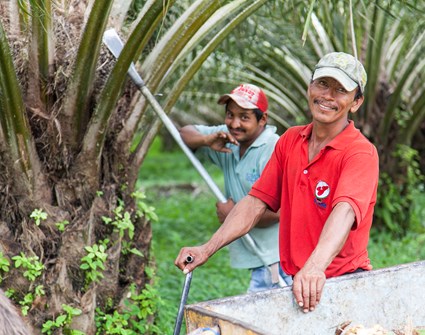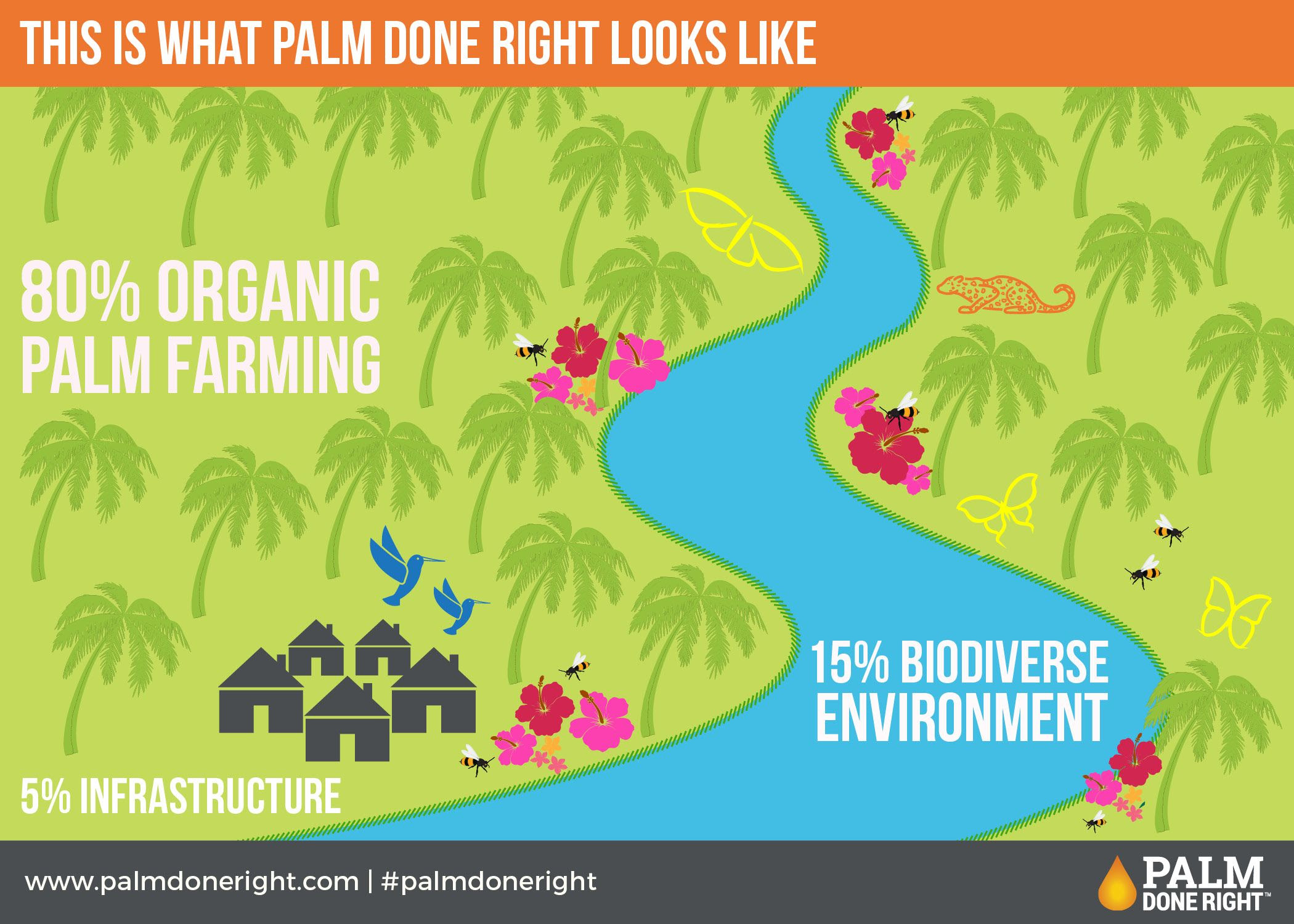
The first step to understanding the topic of palm oil is to explore two common misconceptions that have gained attention recently due to media attention and false claims.
Myth #1: There is no such thing as sustainable palm oil.
This is simply not true. There is as much false information out there as there are great solutions ready to be told. This misconception is voiced by a featured article in the newspaper The Independent, which stated that “there is no such thing as sustainable palm oil”, which only talks about palm growing in Southeast Asia. Latin America, a growing palm-producing frontier with a very different growth mindset, was not included in the research.
The research pinpoints some shortcomings around certification standards, like consensus over what counts as deforestation, the use of sufficiently strict guidelines for forest protection, and lax enforcement. It does not dig into some of the great solutions that are happening in Latin America, like in Colombia, where producers signed the first national zero-deforestation agreement for palm oil; or in Ecuador, where the Ministry of Agriculture reactivated its jurisdictional Round Table on Sustainable Palm Oil (RSPO) Certification plan, which means entire provinces will be certified sustainable, instead of individual companies and plantations.
When companies (and countries) don’t compromise, sustainable palm oil is a reality. This means taking the challenges facing palm oil seriously: eradicating the use of chemicals by using 100% organic practices, refraining from deforestation, taking a wildlife friendly approach to oil palm growing, and taking a fair and social approach to farmers and workers.
Ecuadorian farmers are proving every day that palm oil can be produced sustainably, through the strict adherence to organic and sustainable production practices. The Palm Done Right Model serves as a foundation to govern sustainable and fair palm operations; it sets a standard for organic production, empowerment and collaboration.
Myth #2: Palm oil is a primary cause of deforestation.
While it is true that palm oil production, especially in Southeast Asia, has been the cause of much environmental destruction, numerous reports have shown that more deforestation has occurred from industrial-scale livestock production and soy-farming. In fact, soy farming is responsible for more than double the amount of deforestation than palm oil production. In the context of other food sources, livestock and beef production has led to more than five times the amount of deforestation, compared to palm oil (see phys.org).
Replacing palm oil with other ingredients such as soy would not solve the issue of deforestation but would worsen it. Palm oil is the most productive vegetable oil crop. Alternative vegetable oils aren’t better; in fact, palm oil produces at least six times more oil per hectare than its closest rivals, rapeseed and soy. Because land is one of the most limited resources on our planet, switching to an oil crop that takes up so much more land is likely to cause even greater environmental damage.
It is important to look for sustainable sources of palm oil, such as palm oil made using 100% organic practices. The attention needs to shift to showcasing the great solutions that are already out there, for example from Latin America.

